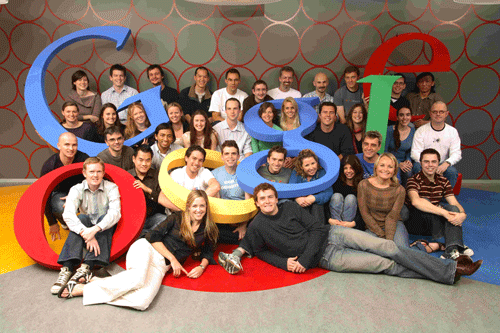
When you see outstanding performance on a regular basis, it is quite possible that you will sooner or later see performance that is closer to the average. This is a statistical necessity called regression to the mean. In the case of a company with an outstanding record, it is quite likely that we will sooner or later see a drift towards the average.
Google seem to be experiencing issues like this recently in terms of their people management practices. Not surprisingly, as the firm grows and grows it needs to control costs and promote the return on its people practices. Now, Google is receiving flack on a number of fronts. Just this week, the New York Times reports that Google has announced an increase of 75% in the price of child care for employees:
"Parents who had been paying $1,425 a month for infant care would see their costs rise to nearly $2,500 — well above the market rate. For parents with toddlers and preschoolers, who were charged less, the price increases were equally eye-popping. Under the new plan, parents with two kids in Google day care would most likely see their annual day care bill grow to more than $57,000 from around $33,000."
According to Silicon Valley Insider:
"the Google co-founder Sergey Brin said he had no sympathy for the parents, and that he was tired of “Googlers” who felt entitled to perks like “bottled water and M&Ms,” according to several people in the meeting. (A Google spokesman denies that Mr. Brin made that comment.)"
Is this also a case where a company has built a reputation for its remarkable HR practices only to suffer when reality creeps in? Could it be that HR must be careful in terms of long term planning - how fun and attractive can we reasonably make this company if we expect to be held accountable for costs and returns in the long run. Is it really true that the 'Googlers' feel a sense of entitlement, or is this backlash to be expected when you seem to be breaking a psychological contract. Google promised explicitly not to be evil. They also promised, implicitly, to take great care of all of their employees needs. If they are seen as breaking these promises by insiders and outsiders, it will no doubt impact their employment brand and ultimately their corporate reputation.
There are a number of clouds on the horizon. In a recent blog, one insider explained why he was returning to work at Micrsosoft:
"There are many things about Google that are not great, and merit improvement. There are plenty of silly politics, underperformance, inefficiencies and ineffectiveness, and things that are plain stupid. "
It will be interesting to see how Google handle this next phase in their life - as they move beyond the 'everyone loves us' phase. Are they going to regress to the mean - at least an 'industry' mean if not the 84.hour.week.working.at.the.steel.mill mean.

2 comments:
I start wondering if I should not use my intuition for money! Most importantly, the big G does not have HR function (religion without clerics?!).
This video of Rosenberg Jr. http://www.youtube.com/watch?v=4zIaglJNPcY&eurl=http://www.economics.com.au/?p=1472 strengthened my suspicion. So whom does an upper C hire, assuming that C thinks he’s an upper A?
I think Rosenberg is spot on regarding hiring. Realistically, there are two mechanisms here. First, A's are more likely than C's to be able to see talent. Second, C's have a disincentive to hire people smarter than themselves. Very few people have the balls to hire someone better than themselves. However, if you can, you, your group or organization can all benefit.
I think you are wrong about the Google HR function. First, because regardless of whether there is actually an HR dept there is still hiring, compensation etc which are part of the 'function' of HR. Second, because I heard they were hiring HR people from a combination of practice, consulting, and academia. This is from someone who claimed he had been a candidate - so I could be wrong!
Post a Comment